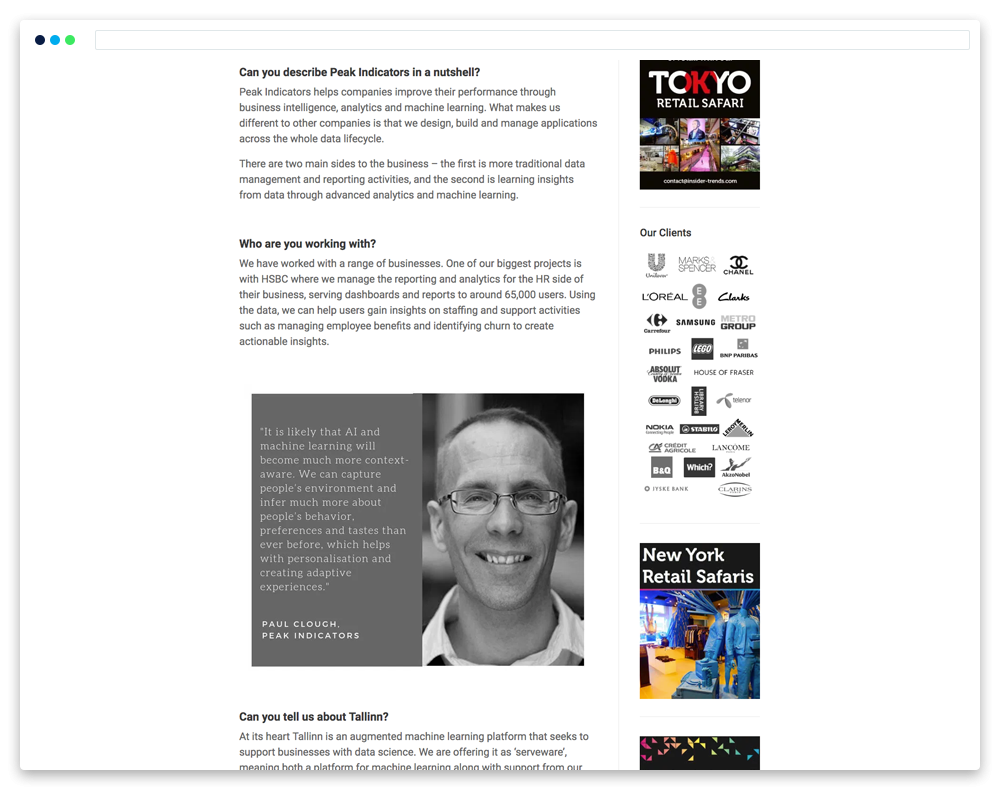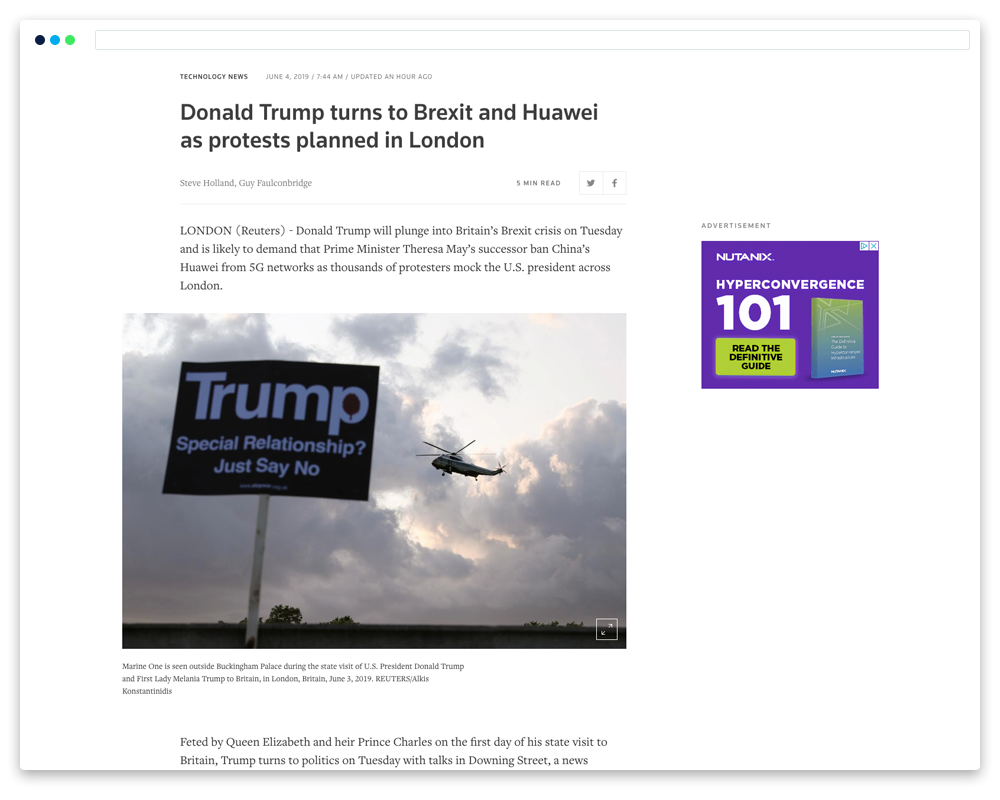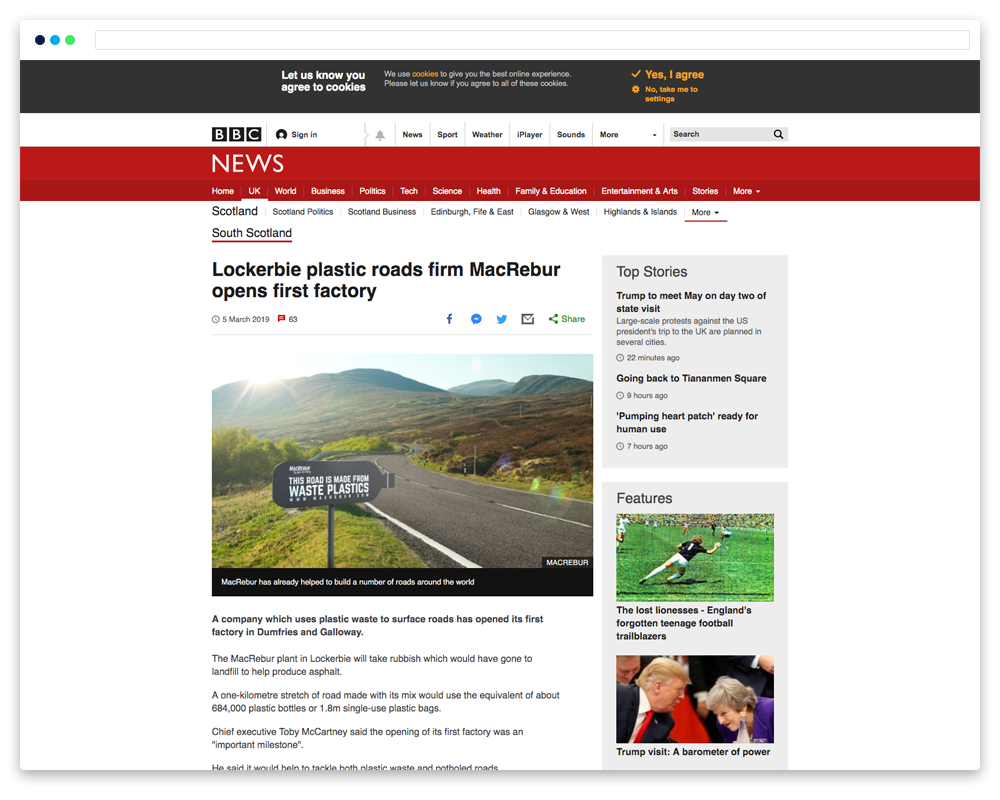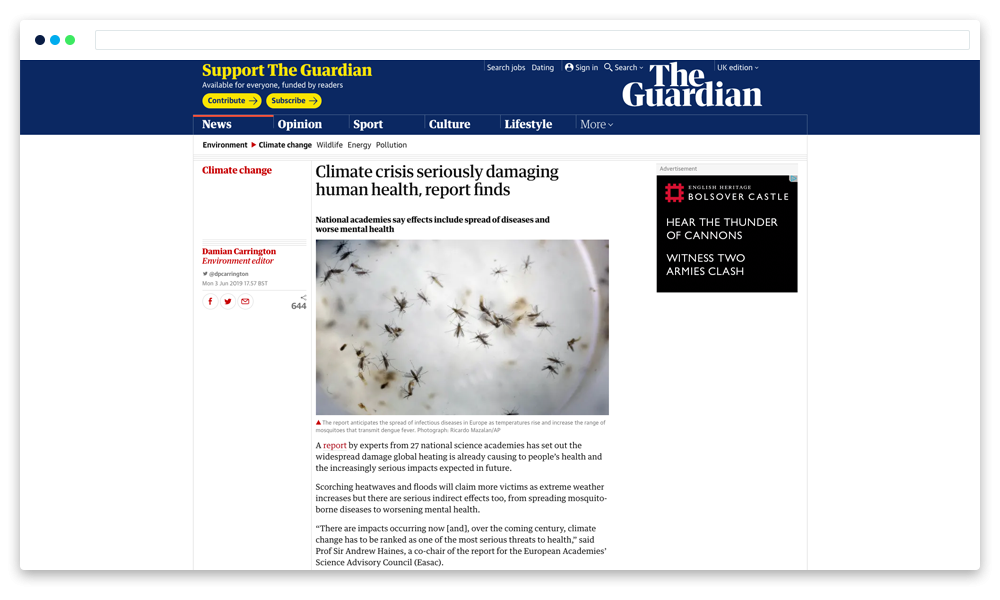BBC Perspective: How To Deliver Pitches That Get A Response
Journalists are under immense pressure, with very little time to respond to unexpected emails. So, if you’ve got an idea to pitch, you have to do everything right to have a chance of even getting noticed in the first place.
Earlier this year, I contacted Parisa Qurban at the BBC, with the goal to help other digital marketers and PR professionals understand how they can write better pitches and gain more coverage for their clients and employers.
Combining my own insight with the fantastic feedback Parisa provided, we’ve taken a look at how you can improve your chances of gaining coverage.
ADD WEIGHT & CREDIBILITY TO YOUR PITCH
Don’t underestimate just how many people are vying to grab the attention of a journalist - particularly if it’s for a big organisation such as the BBC. You need to be doing everything you can to ensure yours is the pitch that stands out, which absolutely ties into building authority into your pitch.
You should be looking to include a section within your pitch that builds credibility around the company or individual you’re looking to gain coverage for. This may extend across:
Places coverage has previously been gained
Awards and accolades
Notable clients
Parisa:
"When I look for people to add to a discussion or debate - especially for broadcast material - I always aim to find an expert or someone who has a strong connection to the issue. They should be able to provide strong and clear points to clarify matters, to even question relevant situations ahead. This in turns fuels discussions and debates being had on news matters."
I recently secured this interview with Insider Trends for machine learning and business intelligence consultancy Peak Indicators. The initial pitch was strengthened by emphasising the credentials and expertise of their Data Science Lead Paul Clough, as well as the company.

EMPHASISE THE VALUE
When you’re pitching your content idea, you need to place emphasis on why your piece/quotes/data are valuable to each journalist. Whilst you obviously need to work within the restrictions of your marketing budgets, taking the time to tailor the email to the person you’re pitching to can be priceless.
It can also very easily be the difference between success and failure - and really, one great contact or piece of coverage is clearly better than zero. Use the time you have intelligently:
Parisa:
"A good journalist is busy researching and finding original content, so when they are approached by a PR contact it’s always good to know what kind of story would be valuable to them if they wish to cover it. Simplicity is key, and the way this information is delivered is vital If you want them to email or phone you back.
For example, I work in current affairs, I had expressed my interest in finding stories that addressed different prominent issues, but also that I was interested in finding solutions. What is happening? How is it impacting our lives? What can be done about these issues?"
BE RELEVANT
Relevancy is so important in the press. It’s the essence of what makes content newsworthy. With this in mind, you have to find the right journalist, the right publication - and most importantly - the right story for them.
If you’re looking to gain coverage for a company or individual around a topical subject, make sure you explain why they’re the person the journalist should be using. Explain their connection to the news topic and present powerful reasoning as to why the journalist need not use anyone else!
Parisa:
"I would say if you are representing an expert who could be a guest on a programme or contribute to a piece, it’s always good to keep a keen eye on news matters. Think about how the person you are representing could add relevant information or a new angle of discussion to a particular subject."
If you can offer a new angle on a current trend or story regularly being covered by the journalist you pitch to, you'll likely win plenty of friends. Take one of the top current global news stories - how could you offer something new?

IMPROVE YOUR COMMUNICATION SKILLS
Sometimes the key to getting eyes on your pitch is simply better communication. You can have the best idea in the world, but if you can’t communicate it concisely and powerfully, then it’s unlikely to get the coverage it deserves.
Parisa:
"I know several PR contacts and communication directors (at universities) in different industries, and at points when they have asked me for advice on how to tailor messages better, I always say, think about why the information is significant and follow on from there
Clarify any details and think about questions a journalist may ask; so you can send that information over and provide clear precise points. It’s all about ease of communication.
This saves time which is vital in this industry, and if you engage the journalist in this way, it leads to you providing something that adds to a valuable broadcast or online content. Think like a journalist would: what is the story and why is what I am sending over going to be suitable and worthwhile to acknowledge?"
THINK ABOUT EVERY ASPECT OF THE EMAIL
Don’t waste too much time on pleasantries - I say this as someone who is always keen to make a good impression too. If you spend three lines asking the journalist how their day is, the cold hard truth is that you risk being ignored.
Instead, focus on capturing their imagination from the off with clever language. Then, you can thank them for their time at the end of the email. If they’re interested, they’ll still read that bit.
No matter how hard you work on your main email content, however, you still need to get the journalist to open your email in the first place. There are two key elements here:
The subject line: Think about how you interact with emails from unknown senders - I bet you rule out a good chunk of them if they don’t look legit. It’s worth remembering this and spending time crafting an eye-catching subject line, to improve the chances of your email being opened.
The preview text: In some email clients, such as Microsoft Outlook, preview text displays beneath the subject line in the inbox listings. This can act as an additional teaser beyond the subject line, but you will only have a few words to play with.
Parisa:
"I always say having a top line that stands out is key. It needs to attract the journalist and be written very concisely."
BE INSIGHTFUL AND DO YOUR RESEARCH
Show that you understand what the journalist that you’re pitching to does. See what they’ve written about in recent months. This way, you can narrow down whether they would:
Actually be suitable for the content you want to try and gain coverage for
Be glad of a new angle on a popular news story or trend they regularly cover
Parisa:
"I work in current affairs and news, and when needed I do a lot of research into topics, finding original content and stories whilst clarifying matters. That said, I am always happy to be contacted by people with a story - especially if it adds relevance to a story or news matter I am addressing, especially if it’s something new and interesting.
Last year, the topic of plastic waste and pollution came up regularly and is it an important issue everyone is talking about, it was discussed on TV and radio programmes a lot.
Knowing the kind of stories I was chasing, and after tweeting away about subject matters I was addressing online, I was contacted by a PR who provided me with a few lines about a company that was using plastic waste and adding it to bitumen, a substance used to repair and create roads."
This piece from the BBC presented an interesting example of plastic waste being tackled in the road surfacing industry.

Parisa:
"Therefore, it was acting as a solution to avoiding tons of current plastic waste going to landfills and eventually being dumped where it would continue to affect our environment. In this case, I did my own research into the company and how they aimed to work with several more councils in the UK in different regions. I had a news line regarding how they already had plans to deliver the process of turning local plastic waste into roads in specific regions; gaining planning permission for certain areas.
Also, as someone who likes to cover things on a wider scale, I made sure I gained all information on how they had progressed in other countries to tackle plastic waste, whilst strongly critiquing whether this can spread to places in the UK sufficiently.
Could it be a major problem solver? What does this mean in the long run? What’s been happening so far? How has this helped other areas? Can it be an effective solution? It’s also good to know what to have at the ready. If the journalist wishes to film a story, what could they film?
What would bring life to the story? Etc. These are things they will have at the ready to discuss with you if you have pitched the story well and it suits their coverage, so think about their platform - Could the story make a digital or online piece, or add to a programme/broadcast for TV or radio."
KEEP THINGS CONCISE
Journalists are very often time poor, so you have to get your message across to them quickly and effectively. Think about every word you include and spend lots of time finessing a structure within your emails that:
Gives priority to the key information
Communicates your idea persuasively and effectively
Covers ways the relationship could progress in the future
Explains the value of your own company or that of your client
Parisa:
"Once you have the top few lines introducing the story, and why it’s relevant, provide concise, to-the-point information from there. Stray away from the buzz words used so often, and instead tailor the email thinking about what impact the information you are sending over could have. You need to be bold and on the ball with the ‘Why should they care?’ factor.
Tailor your email like a conversation with the journalist, in a way that makes the ‘what is it?’ and ‘what impact will this have on a piece?’ factors stand out. Why is this important for you to know? This way, you get the relevance of the information you are sending out there.
From there, sequence important points the journalist should know, facts, details, and format this in a way that is to the point. Even if you provide a series of questions and answers, such as:
‘Why is this information crucial to know…?’
‘What impact could this news or contributor have to this particular subject….?’
Even adding this information in the form of bullet points is great, it’s about highlighting what is important.
Keeping it simple, to the point, and precise is what will get a journalist’s attention."
GIVE YOUR STORY SOME HEART
Every piece by every journalist is different. Yet there are themes that run through the core of great journalism that can often be applied across a whole host of different areas. A great example of this is stories with ‘heart’.
Writing that evokes emotion or stirs up powerful feelings is always going to be more widely read - and you should be bearing this in mind when you’re putting together your pitches.
Try not to just think about the exact information, data or quotes you’re offering. Instead, spend some time also thinking about what that could mean to the audience you’re hoping the journalist helps get your content in front of. We can all be guilty of getting caught up in securing the backlink, but if you can instead focus on what actual value you can offer to the audience in question, you’re actually far more likely to be successful anyway. Play the longer game.
This story in The Guardian does a great job of impressing how vital it is that there is a change towards mankind's approach to climate change. If you had a relevant client, you could offer a story that shows an example of how the problem is being tackled.

Parisa:
"Taking Brexit as an example: Last year, so many situations needed clarification going forward, from tariffs, employment, to freedom of movement. One subject people were genuinely concerned about was the subject regarding their status in the UK and what this meant for their employment or business ventures.
People who had businesses and who operated in the UK and European countries had several questions about how Brexit would change things. They wanted to know how this would impact their situations.
Getting to the heart of stories, many people felt their livelihood would be changed in terms of residency in the future and for their family members, all issues linked to freedom of movement. Doing some digging on the matter, especially after the white paper was released regarding immigration laws following Brexit, I was able to get in touch with an immigration lawyer who expressed her views strongly.
She was able to answer my questions elaborately and voiced her opinions on what this meant going forward, whilst providing different scenarios on how Brexit would affect people’s immigration status or employment in the UK and abroad. Having people voice their concerns, an expert, whilst debating matters going ahead is what engages an audience and in current affair matters, clarifying or questioning issues is key in discussions being had."
SUMMING UP
If you look to implement the tips we’ve discussed here and finesse them with Parisa’s advice, you can expect to significantly improve the quantity of links and mentions you gain elsewhere.
Parisa:
"Writing this, I’m reflecting to those who have contacted me, people who are friends and who work in PR and who have asked me for advice on how to piece things up better, whilst speaking to previous communication managers from universities.
To sum it up, top lines introducing why what you are sending is significant is key - and follow from there - even if it’s an additional casual few lines when emailing the journalist explaining why you have reached out to them. Have the initiative to think ahead: What information am I going to send that is of significance for the journalist to look into or approach? Why is it relevant?"
If you require expert support in content marketing and digital PR for your business, check out our content marketing and PR services today.









